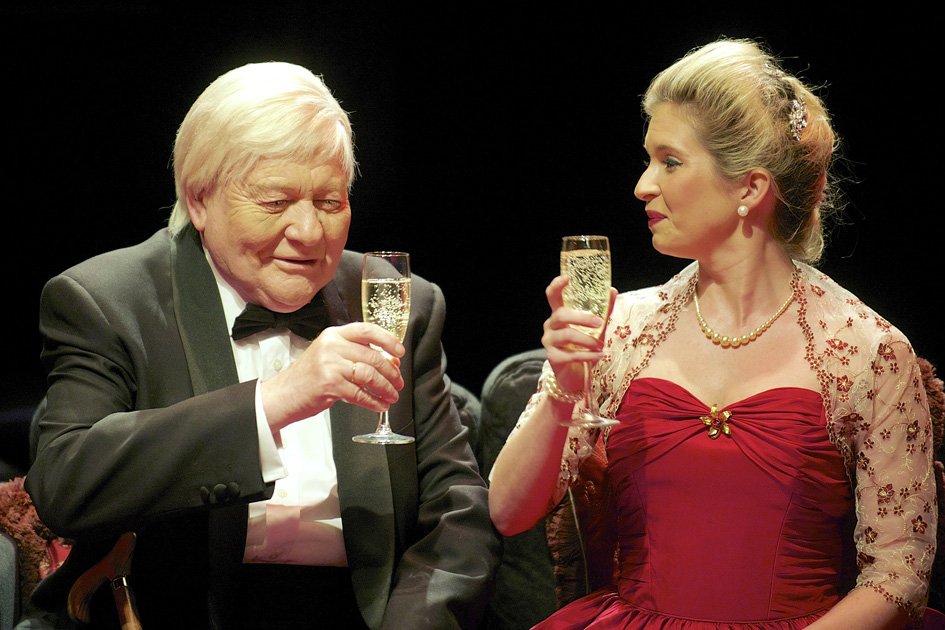William Shakespeare wrote thirty-eight plays, Alan Ayckbourn has written seventy-eight. Some of Shakespeare’s later plays were among his best, Ayckbourn’s were not.
If I was a famous playwright, or a famous anything, I think I would like to be remembered for my best work, not have my legacy destroyed, or at the very least compromised, by the stuff I kept churning out to keep the pot boiling.
Ayckbourn, beyond any doubt or question was one of the most significant figures in British theatre in the 20th century. His early plays, while not Chekhov or Pinter, were acclaimed by both the public and the critics. He had a lot to say about domestic relationships and the mores of middle-class, middle England. He produced all his own work and they were all first performed in a theatre which he created and ran. There was nobody to compare with him; his place in the theatrical firmament was assured. I can understand that a man needs to keep on working and I can understand that after having written and produced 78 plays, you feel pretty confident in your abilities. However, you can lose all sense of objectivity and think you can do no wrong, especially if you are king of the castle and there is nobody to rein you in, nobody to take you aside and say enough is enough.
As you will have gathered, I did not have very high hopes for Mr Ayckbourn’s latest offering, Roundelay, which is currently on tour. So, I need to say straight off that it was a lot better than I had anticipated and some of it I really enjoyed. The piece consists of five (or in the presentation at the Everyman, four) short plays. Each has one or more characters in common and a shared backstory. But here’s the twist – the plays can be performed in any order, an order chosen at random by lottery type balls in the foyer by the audience as they enter the theatre. This arrangement seemed a little arbitrary to me, a bit of a gimmick, perhaps designed to bring a certain frisson to each performance. From what I could see the running order would make no difference, there was no outcome or conclusion, so I couldn’t see the point.
One of the plays, The Judge, I really enjoyed, two of them, The Agent and The Star, were perfectly entertaining and one, The Politician, was a bit of a daft comedy of errors. The Novelist we didn’t get to see. On the whole, the acting was good but the outstanding performance, despite a silly wig, came from Russell Dixon as Tom, the retired judge. His mischievously lecherous old man who had hired a call-girl to impersonate his long-dead wife was great fun and a delight to watch.
I didn’t like the setting. The plays were presented in a fairly conventional box-type set but one that was dark and oppressive, totally lacking any features or decoration – so much so that they mimed opening a window, which I hated. I understand that if you are presenting four or five different plays on the same stage you must have a one size fits all set but this was unnecessarily complex and rather dull and intrusive. Just the furniture, props, some nice lighting and sound effects would have been much better.
If you are a loyal Ayckbourn fan then Roundelay will not disappoint. If, like me, you had rather given up on him, this piece may well go some little way to restoring your faith. ★★★☆☆ Michael Hasted 25/02/15


